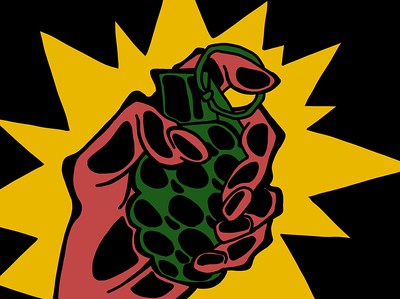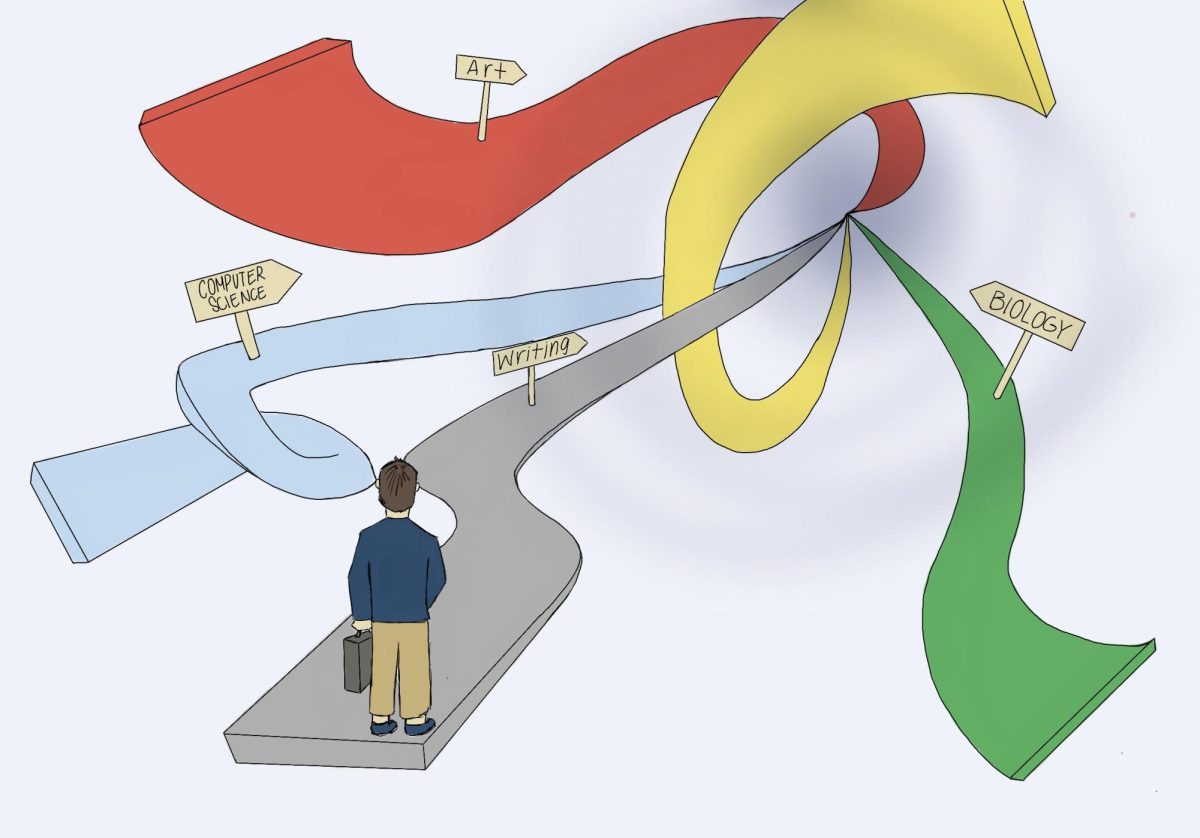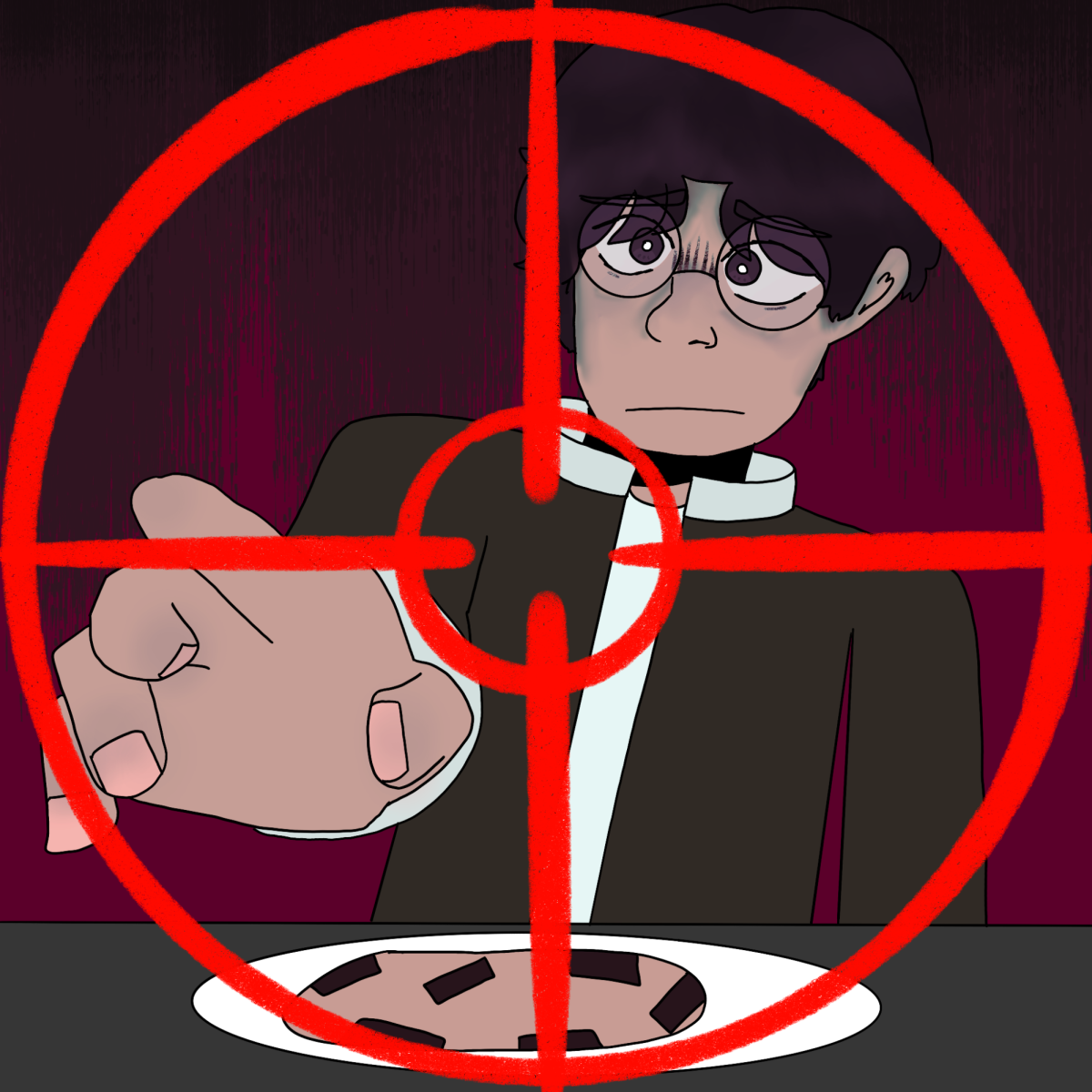
We used to construct human zoos and place minorities in cages under the guise of entertainment. More recently, yet not that recent, we used to hang women out of a fear they might have been cursed with dark magic. Our history is one rich in violence, a fact we’ve only come to acknowledge as the years pass.
All things considered, if time is a resource that allows societies to reflect on the ethicality of the past in an effort to improve the state of the present, we’ve been doing an awful job at using it. Barbarity is still so very deeply entrenched in the modern era and this nation’s militia ensures societal progress remains nothing more than a myth.
The more I look at the military-industrial complex this country praises so heavily, the more the line between our moral values of the past and the present starts to blur. Have we truly grown as a country or are we just better at hiding everything that’s hindering said growth? It’s essential that we stop glorifying the military and start questioning the power it holds in today’s world.
Within the one-minute window it took you to finish reading these beginning paragraphs, our government has spent roughly $80,000 on nuclear weapons. To put that into context, that’s around $40 billion annually in a country that struggles to provide sufficient education to its own constituents.
Instead of spending this money on preventing educational inequality, in 2018, we bombed a school bus in Yemen. When we could have increased the availability of classrooms in our own country, the United States made sure 40 Yemeni children never stepped foot inside one again.
When we think of mortality in war, rarely do the innocent children who will never feel the embrace of their parents prioritize the single soldier we label a “hero” because of his return home in a casket draped in the American flag and his ability to point a gun in a war that was never about freedom.
Considering the last war fought solely to preserve American freedom was arguably in the 20th century, you can’t help but wonder what we’ve been doing since. In 2003, under the name of fighting terrorism, we took control of Abu Ghraib, a prison located in Iraq, and left behind images of American soldiers smiling as they posed for photos next to dead Iraqis, evidence of weekly executions, and a long history of human rights violations within the same walls that, ironically, once belonged to Saddam Hussein. If our goal was to fight terrorism, inhumane actions like these make me question who the real terrorists are.
It’s no secret that this nation disregards lives in the Middle East, but what’s worse is our eagerness to move past it just because the end of someone else’s life doesn’t equate to the end of ours. The fog that follows patriotism blinds us from the hypocrisy produced when we mourn a fallen soldier and not the casualties they are responsible for. We send our soldiers home engulfed in caskets and neglect the children engulfed by flames birthed by weapons our very own taxes subsidized.
In a similar vein, the way we handle money is truly disgusting. Various fingers kiss a slip of paper that has rested in the unwashed palms of unhygienic men and women, but it’s at its most disgusting when our government soaks those bills in the blood of Muslims who will never see tomorrow.
At a young age, we are indoctrinated with notions of “leadership” and “honor” pertaining to the military, and we continue life with these ideals in the back of our subconscious, because of course, who are we to question the heroes who lay their life on the line in hopes of a better future? Should we ignore the 13% rise in sexual assaults reported within the US military? Does the military’s domestic violence crisis suddenly become null and void because we choose to gloss over it? Who’s going to highlight the corruption that exists within a system that silences victims and places abusers on a pedestal?
None of this information will ever hold any weight in a country that values power over ethics. While the heartbreaking stories of Kori Cioca and Vanessa Guillén are just two in the ocean of sexual assault allegations that drown the military, such an immoral establishment is able to stay afloat through the officials at the top who have dismissed every story with ease to protect the reputation of offenders.
When the fog clears and gives way to the deceit that has been running a shameful organization for years, there lies a system that’s garnered the blind support of its constituents through the facade of generosity. This generosity comes in multiple forms whether it be the $65,000 of student debt relief one can earn through service or the life-saving health care benefits provided. However, it’s hard not to view this predicament as anything other than dystopian when a first-world country is unable to guarantee basic human necessities to its citizens unless they join a battlefield.
Why are we so numb to a system that enforces the belief that lending your support to a corrupt institution is the only way to gain access to sufficient health care and wages? The answer is simple: our government ensures military propaganda is far more prevalent in the average American’s life than quality access to health care. When the Department of Defense supervises Hollywood screenplays to enforce pro-military sentiments, or when the Marines visit high schools and scout for recruits that can’t even drink, or when the Army goes as far as to stream on Twitch in order to prey on a significantly younger demographic, it’s evident that their greatest fear is freedom of thought rather than the loss of political freedom itself.
The moment the American people decide to think for themselves is the moment the military loses one of its main resources―public support. It’s this freedom of thought and critique that we need to embrace if we want to work towards a more conscious society. We aren’t fighting criminals, we aren’t fighting terrorists―we’re fighting the defenseless and neglecting the fact that maybe, just maybe, America is perpetuating the very same terrorism it strives to end.







